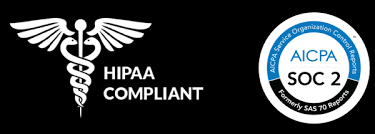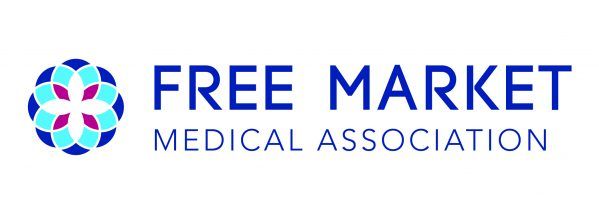Health Compiler and Hint Collaborate to Enhance Primary Care Practice Growth

Dr. Dunbar
From Billing to Building Relationships: Dr. Siatta Dunbar’s Journey to Starting her Own DPC
Introduction
In the dynamic world of healthcare, the Direct Primary Care (DPC) model emerges as a revolutionary shift that promises to transform the patient-provider relationship. As Dr. Dunbar begins her exciting journey into DPC, she is poised to redefine how healthcare is delivered, moving away from the traditional fee-for-service model. As an advocate and visionary in the DPC field, Dr. Dunbar provides valuable insights into this new model through a recent survey. This document synthesizes Dr. Dunbar’s perspectives, delivering a comprehensive analysis for healthcare professionals.
The Essence of Direct Primary Care
Transforming Healthcare Delivery:
Direct Primary Care represents a bold departure from the conventional healthcare model. By prioritizing a patient-centered approach and freeing itself from the constraints of traditional insurance systems, DPC paves the way for a more personalized and effective healthcare experience. Dr. Dunbar, now transitioning from a fee-for-service model, is enthusiastic about the potential of DPC to enhance the quality of care. This model allows him to focus on what truly matters: providing exceptional, individualized care without the limitations of traditional billing practices.
Building Trust and Collaboration:
At the heart of DPC is the commitment to cultivating a deep sense of trust and collaboration between patients and their providers. Dr. Dunbar’s new DPC clinic will embody this philosophy, harnessing the power of advanced technology and a collaborative team approach to improve patient outcomes. By embracing DPC, Dr. Dunbar aims to offer a level of personalized attention and proactive health management that meets the unique needs of each patient. This transition represents not just a change in practice but a profound opportunity to foster stronger, more meaningful connections with patients, paving the way for a healthier future for all.
Enhancing Patient Outcomes
The Impact of Personalized Care:
A compelling advantage of the DPC model, as underscored by Dr. Dunbar, is its significant effect on patient outcomes. By maintaining a reduced patient panel, DPC providers can dedicate more time and attention to each individual, resulting in more effective chronic condition management and improved preventive care. This model fosters comprehensive, continuous engagement with patients, essential for managing complex health issues and supporting a holistic approach to care.
Evidence of Improved Outcomes:
The benefits of enhanced patient-provider interactions are evident in the improved patient satisfaction and health outcomes associated with DPC. Patients receive care that is not only more responsive but also finely attuned to their health needs and goals. This emphasis on patient engagement and proactive health management highlights DPC’s potential to drive superior health outcomes and overall patient well-being.
Strategic Advantages for Employers and Self-Funded Insurers
Cost Management and Employee Well-Being:
For employers and self-funded insurers, the DPC model presents strategic advantages that address both cost management and employee well-being. Dr. Dunbar highlights that DPC’s predictable, flat-rate fee structure significantly reduces healthcare expenditures while simultaneously enhancing employee productivity and satisfaction. Unlike the volatility of traditional insurance plans, DPC offers a stable and transparent cost model that aligns with contemporary workforce management needs.
Comprehensive Healthcare Benefits:
The advantages of DPC extend beyond cost savings. Employers can offer a robust healthcare benefit that enhances employee well-being and satisfaction, which in turn can lead to increased productivity and decreased absenteeism. By investing in a model that emphasizes preventive care and personalized attention, employers can cultivate a healthier workforce and mitigate long-term healthcare costs.
Addressing Challenges and Navigating Solutions
Overcoming Educational Barriers:
Despite its myriad benefits, the DPC model faces challenges. Dr. Dunbar identifies the primary obstacle as the need to educate potential patients about the value of DPC and the benefits of direct access to a preventive primary care physician. Addressing this challenge necessitates a concerted effort in community outreach and collaboration with like-minded businesses to raise awareness and demonstrate the tangible benefits of the DPC model.
Effective Education Strategies:
Effective strategies for overcoming these challenges involve clear communication regarding the advantages of DPC, including its focus on preventive care, personalized attention, and cost predictability. Engaging with the community and potential patients through informational sessions, webinars, and partnerships with local organizations will be critical for building awareness and support for the DPC model.
Future Goals and Technological Integration
Expansion and Impact:
Looking forward, Dr. Dunbar is dedicated to expanding Saravit Direct Health’s reach and impact. The ambitious goal is to serve 500 patients within the year and extend the DPC model to additional locations, both locally and nationally. Dr. Dunbar envisions Saravit Direct Health becoming synonymous with high-value DPC, particularly through collaboration with national employers and individuals who prioritize prevention and cardiometabolic health.
Technological Advancements:
To realize these goals, advanced technological integration is crucial. Dr. Dunbar emphasizes the need for sophisticated systems to track patient engagement with primary care services and group coaching. This includes developing seamless methods for monitoring objective health data such as vital signs, BMI, heart rate variability (HRV), VO2max, lipid profiles, liver function tests, A1C levels, and kidney function. Additionally, tracking lifestyle factors like nutrition, sleep patterns, substance use, exercise routines, and social connectivity will be vital for evaluating their impact on objective health metrics.
Future Outlook and Sustainability
The Viability of DPC:
Dr. Dunbar remains optimistic about the future of Direct Primary Care, anticipating a growing prevalence of the DPC model among healthcare providers. The sustainable nature of DPC addresses many inefficiencies and challenges plaguing today’s healthcare system, positioning it as a viable long-term solution rather than a transient trend. As the healthcare landscape continues to evolve, DPC stands out as a progressive model poised to drive meaningful improvements in care delivery.
A Progressive Approach:
The adaptability and patient-centric focus of DPC make it a promising solution for addressing contemporary healthcare challenges. By emphasizing preventive care, personalized attention, and cost predictability, the DPC model offers a compelling alternative to traditional insurance-based frameworks. As more providers and organizations adopt this model, it holds the potential to reshape the healthcare landscape and deliver substantial benefits to patients, employers, and insurers alike.
Conclusion: Lessons from Dr. Dunbar's Journey
Dr. Dunbar's transition from fee-for-service to DPC owner offers valuable lessons for anyone involved in healthcare delivery or management:
- Patient-Centric Focus Pays Off: Prioritizing quality care and patient relationships leads to better outcomes and satisfaction.
- Innovation Requires Education: Successful implementation of new models depends on effectively communicating their value.
- Technology is a Powerful Enabler: Leveraging advanced tools can significantly enhance care quality and efficiency.
- Prevention is Key: A focus on preventive care and lifestyle management can lead to substantial long-term health improvements and cost savings.
As the healthcare landscape continues to evolve, Dr. Dunbar's journey serves as a compelling case study for the potential of Direct Primary Care to address many of the challenges facing modern healthcare delivery. For DPC owners, self-funded insurers, employers, and benefit advisors, understanding and embracing this model could be key to navigating the future of healthcare successfully.
Find her on Google: Primary Care in Portland, OR 97225 or visit the website:
www.saravitwellness.com
Interested to share your story?
Contact us today & Let us know!
We will get back to you as soon as possible
Please try again later

+1 415 657 8241
Health Compiler Inc.
2261 Market Street #4632
San Francisco, CA 94114
All Rights Reserved | Health Compiler Inc.
Made with ❤️ in San Francisco

QUICK LINKS
RESOURCES
LET'S STAY IN TOUCH
Contact Us
We will get back to you as soon as possible.
Please try again later.

